At ClimateCAP, Scheller College of Business MBA students and staff learned why climate change is a game changer for the global economy. The summit for MBA students, now in its sixth year, prepares tomorrow’s business leaders to understand and respond to the climate challenge. This year’s conference, which had a focus on leading with resilience, was held February 28 – March 1, 2025, at the Haas School of Business at the University of California, Berkeley. The event brought together over 550 MBA students, business leaders, and experts to address climate challenges and how businesses are working towards carbon reduction. Ten MBA students and one educator from Scheller attended. In a series of testimonials, students and staff reflect on their experiences at the summit.
MBAs Committed to Building a Resilient Future Unite at ClimateCAP
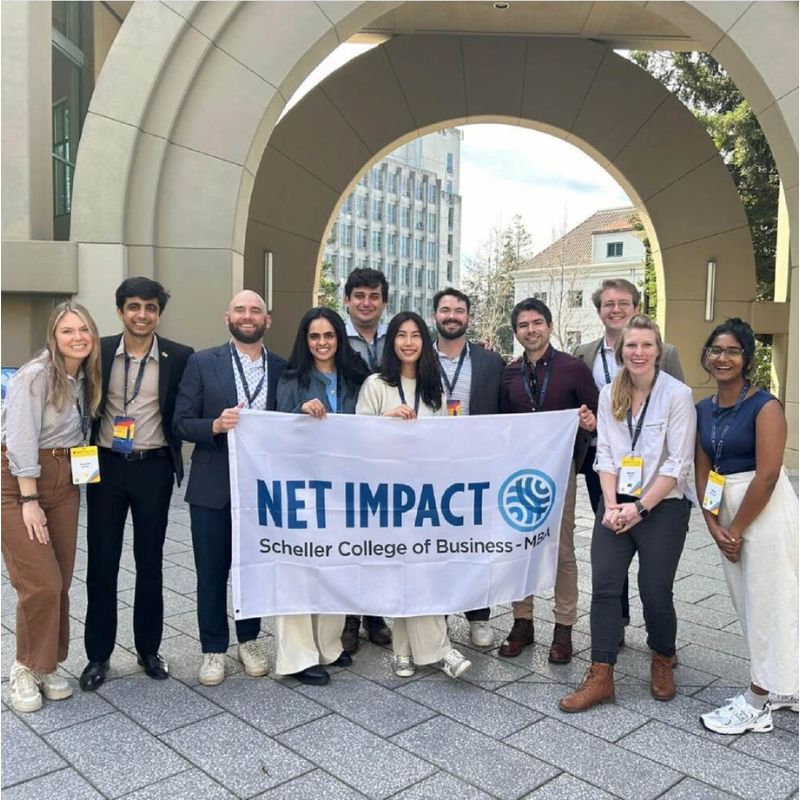
Scheller MBA students and staff attend ClimateCAP.
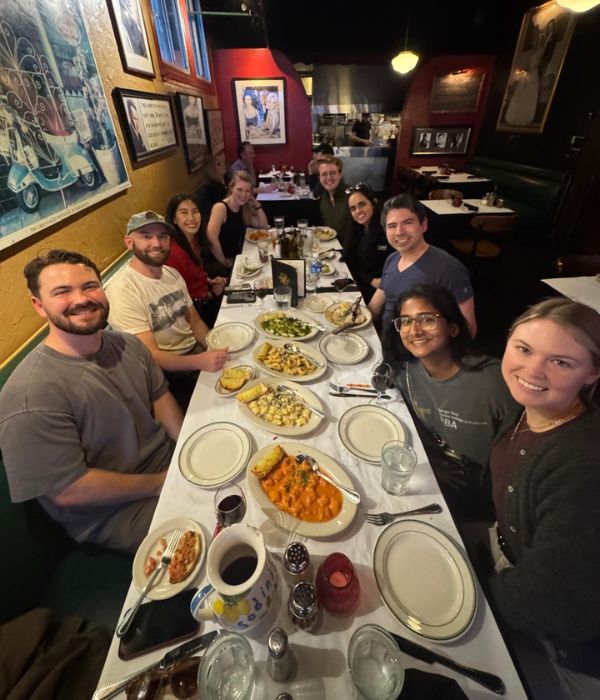
“Both my head and my heart were fully engaged at ClimateCAP. I found myself leaning into the panels that discussed regenerative farming practices (for food systems and the textile industry), indigenous leadership, and mission-driven business for climate action. The experience reminded me that it’s important to expose myself regularly to people who are doing innovative work. I left the summit feeling energetic and excited about tapping into Georgia Tech’s wealth of resources for regenerative business model entrepreneurship.”
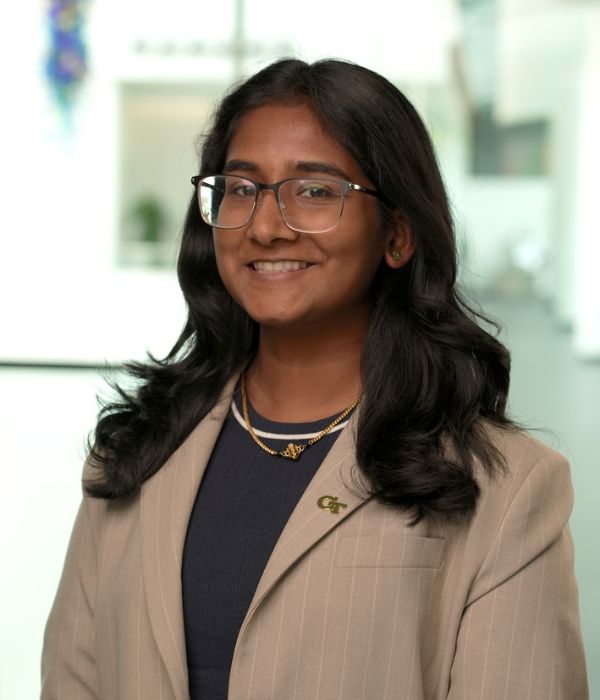
“Going into this conference, I intentionally mixed up the types of sessions I attended. I was not remotely interested in entrepreneurship, so my expectations weren’t high going into the panel session, ‘The Entrepreneur’s Journey: Commercializing New Climate Technologies.’ The session was moderated by Adriana Penuela-Useche of SOSV Ventures and featured Nicolas Pinkowski, CEO of Nitricity, and Rajesh Swaminathan, partner at Khosla Ventures. I worked in chemical engineering pre-MBA, so one of the biggest concerns I had going into the conference was how solutions could be scalable. This panel was the first time I really understood that entrepreneurial ventures have the potential to move the needle for sustainability issues on a large scale. Sometimes, good technology really does make a case for good business, as evidenced in the journey being made with Nitricity. It’s easy to lose sight of all the opportunities in sustainability when you aren’t exposed to them. Out of every other session during this conference, this panel was the one that sold me on the feasibility of pursuing a sustainability-focused career.”
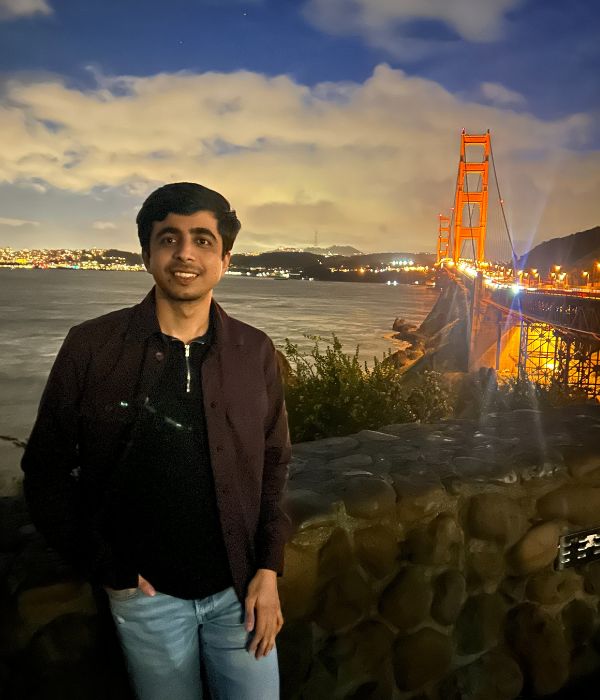
“The ClimateCAP summit highlighted the role of leadership in fostering resilience, with discussions on how to lead teams from within and ways to leverage storytelling to drive sustainability initiatives. I attended several panels (on topics such as food security, the transition to EVs, and the evolution of public transport) which offered actionable insights on advancing sustainability goals and navigating energy transition. It was amazing to network with like-minded peers and hear their perspectives and journeys. Overall, the summit was an enriching experience that deepened my understanding of climate change and reinforced my commitment to integrate sustainability into business strategies.”
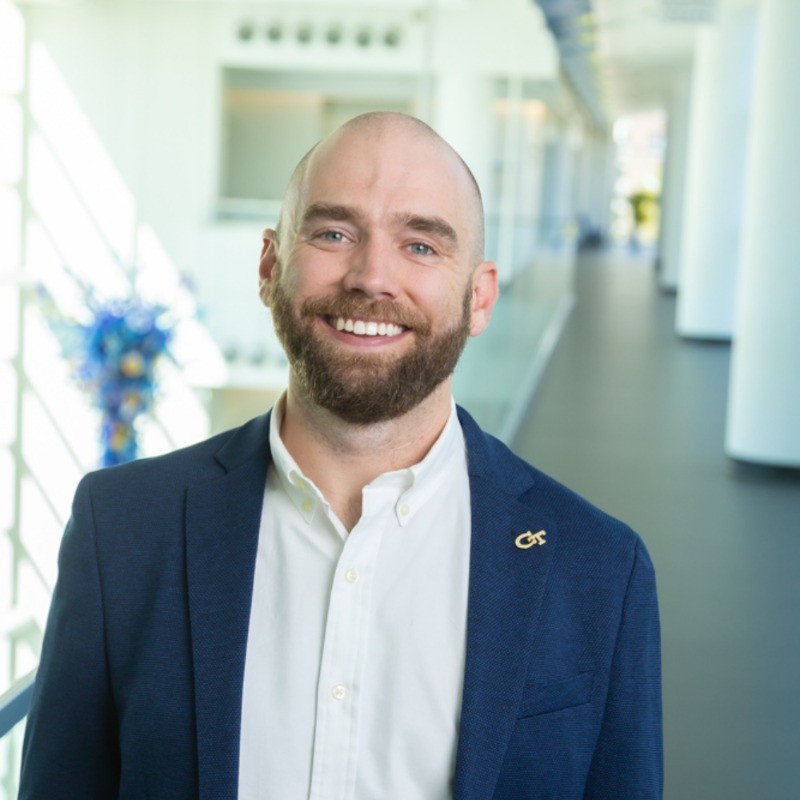
“ClimateCAP was a powerful call to action, reminding me of the need to prioritize sustainability in my post-MBA career. My biggest takeaway was how executives use data and facts to drive change – proving sustainability isn’t just ethical, but a competitive advantage. Panels on climate finance and circular economies showed me how companies are decarbonizing supply chains and rethinking business models. A key insight for me: Bold leadership is essential to making real impact. Beyond the content of the summit, connecting with MBAs and industry leaders underscored the power of community in driving change. ClimateCAP reaffirmed that sustainability isn’t just a challenge – it’s an opportunity to innovate, create value, and build a resilient future.”
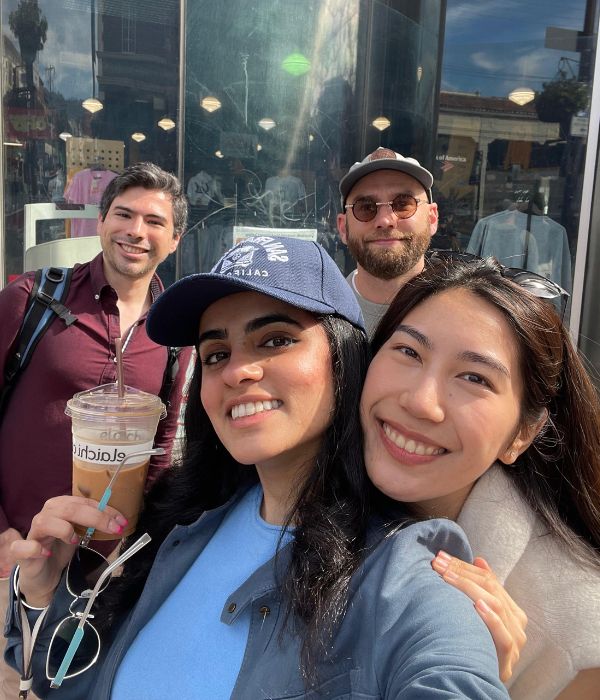
“The most memorable conversation of my ClimateCAP experience unfolded during the panel, ‘What’s the Private Sector’s Role in Making Sustainable and Equitable Food Mainstream?’ It wasn’t just another discussion on sustainability; it was an awakening. The way we eat, source food, and industrialize something as intimate as nourishment suddenly felt more tangible, more urgent. One image stuck with me: a lone forager hiking into the mountains, searching for herbs that have grown wild for generations. Every step she takes is into a fragile ecosystem of flora, fauna, and communities that rely on them. Traditional Medicinals sources one-third of its raw materials this way, relying on intact ecosystems. Alice Waters talked about how people instinctively seek fresh food, as opposed to processed food, without realizing why. It’s not nostalgia; it’s a craving for connection. Regenerative agriculture isn’t just a practice; it’s a philosophy of restoring soil, ecosystems, and awareness.”
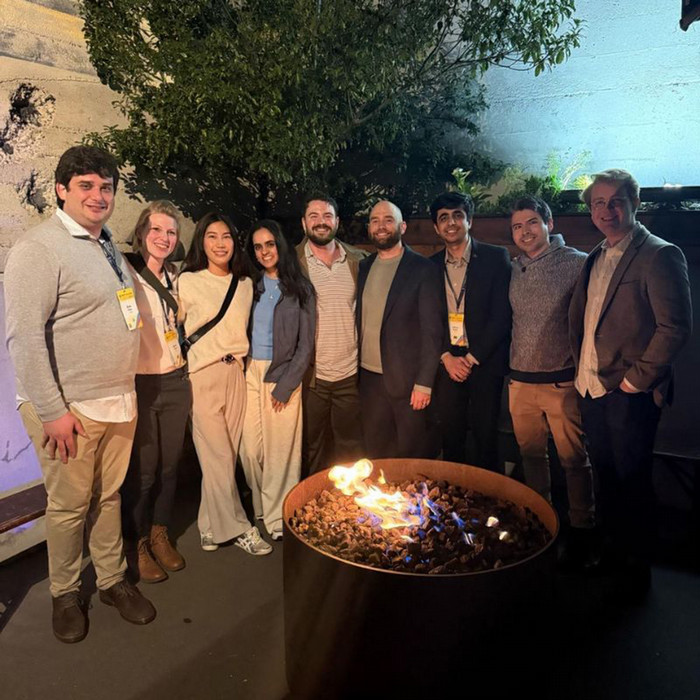
“My second year of ClimateCAP did not disappoint!Keynotes, panels, networking events, and tours covered various topics around climate change. The conference provided me a time to focus on my ‘why’ of working in higher education. In short, I am passionate about helping students find their niche in sustainability at Georgia Tech and in their personal and professional lives after graduation. Poet Aya de León, who wrote a piece specifically written for ClimateCAP, summarized my feelings about educating students in sustainability: ‘You might not want to hear this, but I want you to hear this. Because I believe in you.’”